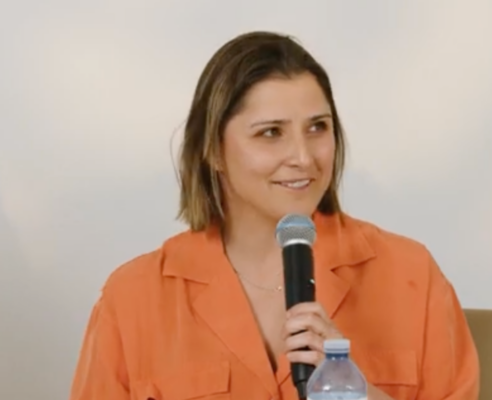In June 2024, LDS Instructor Ali attended an international conference on Developmental Coordination Disorder (DCD) in Ghent, Belgium. This little-known-about learning difference is prevalent in every 1 in 20 individuals. It also has a co-occurrence of up to 50% with autism and ADHD. Also known as dyspraxia, DCD presents significant challenges with motor skills and coordinated movements, such as tasks requiring balance, playing sports, or learning to drive a car. DCD does not have any impact on intelligence. Learn more about DCD here: https://canchild.ca/en/diagnoses/developmental-coordination-disorder.
What DCD Looks Like
In younger children, motor skill and coordination challenges can look like taking longer to ride a bike, having trouble using scissors, holding a pencil, writing, or tying shoes. Children with DCD maintain a larger distance between themselves and obstacles, ensuring stability and avoiding collisions. In later years, this can look like challenges driving a car, estimating distances, and walking across the street. Individuals with DCD may appear clumsy or uncoordinated as they struggle with having their bodies keep up with their brains.
Ali’s Story
Awareness, advocacy, and support are close to Ali’s heart, as she was diagnosed with DCD as a young adult. It wasn’t until Ali was 16 when she moved to British Columbia and went to a new school, that a teacher asked her if she needed support. This attention from her teacher opened the door to her learning about the kind of support she needed to thrive. Ali excelled in math and struggled to translate her thoughts into written material.
With fantastic support from her school and home, Ali had her first Psychoeducational Assessment at the end of high school. Because of a lack of knowledge about DCD from professionals, Ali was diagnosed with NOS – “not otherwise specified.” This diagnosis allowed her to receive some accommodations at university; however, they were the same for every student with learning differences, so not the support recommended for her. She and her family continued to push forward and learn more. After completing her Bachelor of Education, Ali had another assessment done and was diagnosed with DCD.
Ali began to share this diagnosis with friends and was shocked that not one person knew about DCD. This inspired her passion to create support and advocacy pathways and share her experiences.
A Path Forward
Here is some of what Ali wants to share from her own experience and her learning at this international conference:
- Students need support that is needs-based, not diagnosis-based. No two people are the same, and needs look different and can vary greatly for each person with the same diagnosis.
- Support kids in the classroom in the best possible way. For example,
- If writing quickly or legibly is challenging, use speech-to-text or learn to type. You can also help with taking notes and have students share their work in ways that don’t rely on handwriting.
- If math challenges arise, allow a calculator to do some components. Equations take longer at a higher level. Using a calculator can relieve some pressure and prepare learners to show what they know.
- Remove some of the challenges that create a lot of anxiety—using a pencil, throwing a ball, etc. Use technology and support the development of skills with balls, scissors, etc.
- We need more support in our BC classrooms so students with DCD get the support they need. Let’s continue to spread the word. Learn about the work of this new international advocacy group, ISRA (International Society of Research and Advocacy) for DCD https://www.isra-dcd.com/.
- We need a diagnostic tool for adults. When Ali was diagnosed at age 25, she completed a test for kids that required her to remember situations from her everyday life as a kid. We must do better for 5% of the population!
Ali is a valuable member of our instruction team, and we appreciate her sharing her insights and knowledge about DCD and the importance of personalized, needs-based accommodations rather than a one-size-fits-all approach. Her advocacy, driven by personal experience, emphasizes the necessity for better diagnostic tools and support systems, especially in educational settings. By fostering understanding and providing appropriate resources, we can significantly improve individuals’ lives and learning outcomes with DCD.
– Sara Jane R. Walker, Senior Manager, Communications
LDS is a community of dedicated professionals who write collaboratively. We recognize the contribution of unnamed team members for their wisdom and input.


